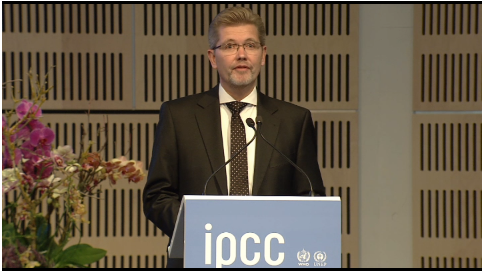The Intergovernmental Panel on Climate Change (IPCC) will release Synthesis Report on Sunday, 2 November.
The Synthesis Report is the last stage of its Fifth Assessment Report (AR5), which provides policymakers with a comprehensive assessment of the risks of climate change.
IPCC has convened at Copenhagen for one week to distil and integrate the findings of the three IPCC Working Groups released over the past 13 months and the results of the two Special Reports brought out in 2011, providing fresh insights by drawing together related information from the various underlying reports.
“The Synthesis Report will provide the roadmap by which policymakers will hopefully find their way to a global agreement to finally reverse course on climate change,” said Rajendra K. Pachauri, chair of the IPCC. “It gives us the knowledge to make informed choices, the knowledge to build a brighter, more sustainable future. It enhances our vital understanding of the rationale for action – and the serious implications for inaction,” he told the opening session of the meeting.
During the meeting, delegates from the IPCC’s member governments, in consultation with the scientists forming the author team that drafted the report, will scrutinize the Summary for Policymakers line by line to ensure it is consistent with the longer, underlying Synthesis Report, and examine the longer report section by section. Their work completes the Fifth Assessment Report, the most comprehensive assessment of climate change yet undertaken.
Danish Climate, Environment and Building Minister Rasmus Helveg Petersen and Danish Environment Minister Kirsten Brosbøl were among other speakers at the opening session.
Pachauri, who as IPCC Chair led the writing of the Synthesis Report, urged policymakers negotiating a climate agreement to base their decisions on science.
“May I humbly suggest that policymakers avoid being overcome by the seeming hopelessness of addressing climate change,” he said. “It is not hopeless.”
Pachauri said the report pointed to the solutions and actions required to tackle climate change.
“This is not to say it will be easy. It won’t. A great deal of work and tall hurdles lie ahead. But it can be done. We still have time to build a better, more sustainable world. We still have time to avoid the most serious impacts of climate change,” he said. “But we have precious little of that time.”
Rajani Baburajan

